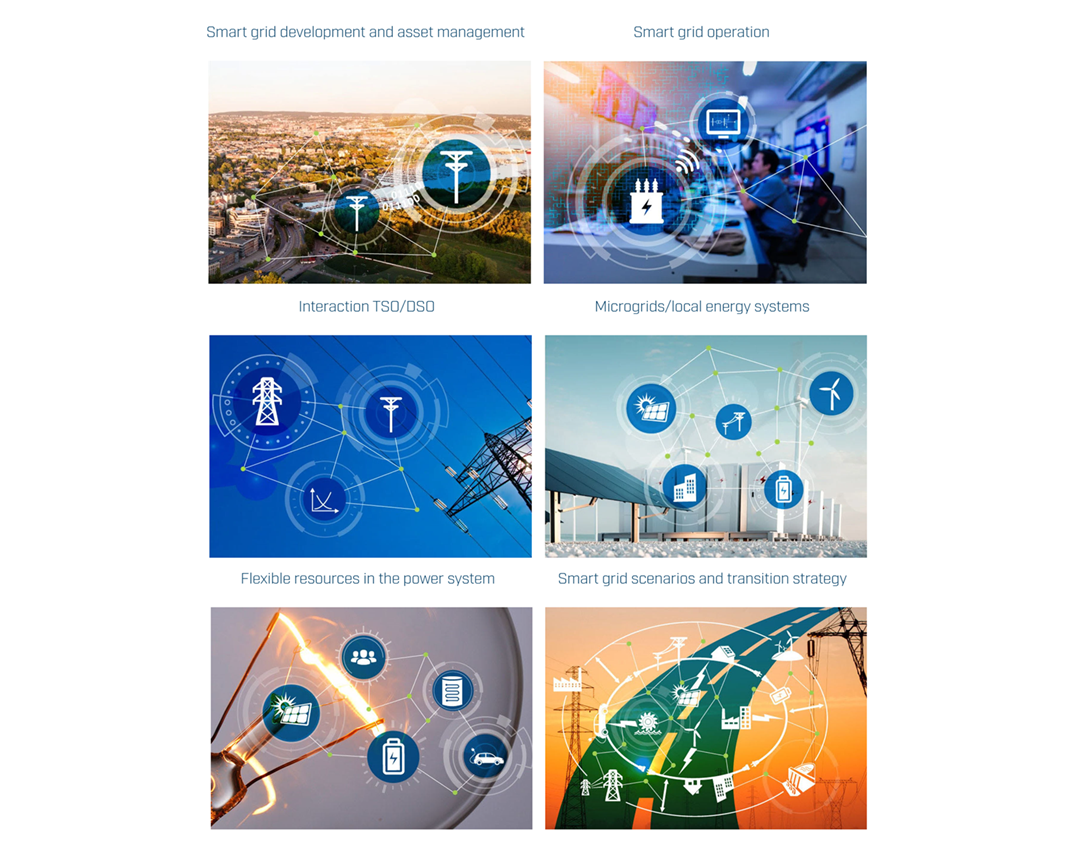This will make the process of finding new knowledge about how do develop a smarter grid much easier.
CINELDI (Centre for intelligent electricity distribution) is a centre for environment-friendly energy research.
The results in the knowledge base contribute to the digitalisation and modernisation of the electricity distribution grid to ensure higher efficiency, flexibility and resilience.
"The knowledge base gathers all the new knowledge from CINELDI in one place, and we hope many will benefit from it, whether they are working for a power grid company and looking for information about flexibility, or are scientists or students looking for publications about reference distribution grid data sets," Gerd Kjølle, centre director says.
People working for technology providers, marked operators, membership organisations and public authorities will also find useful knowledge for their work in the base.
Six main topics
CINELDIs results so far are summarised in different topics and subtopics, and they have references to published papers. The main topics are:
- Smart grid development and asset management
- Smart grid operation
- Interaction DSO/TSO
- Microgrids and local energy systems (LECs)
- Flexible resources in the power system
- Smart grid scenarios and transition strategy
130 results and 35 innovations
To date, CINELDI has more than 130 scientific results, and they have identified 35 innovations throught their work.
"One of our newest results is the reference grids that represent real Norwegian distribution grids. Reference grids enable technologies, scenarios, and challenges to be tested in realistic environments. They may be used for comparison purposes, as well as for quantifying the socio-economic costs of the future grid in relation to investments, operation, power supply interruptions and electrical losses in different scenarios," Kjølle says.
Moreover, reference grids may be used to show the effect of new technologies and solutions, and to quantify their benefits and potentials from a cost cutting perspective.
The reference grid can also be used to visualise appropriate measures for integrating new elements – such as distributed renewable power generation, charging stations for electrical vehicles, and new types of electricity consumption – and for dealing with any challenges that might occur. This enables more fundamental analyses, as well as analyses of new problems in the future grid.
Research results help achieving climate goals
We are well on the way to the full electrification of Norwegian society, due to our commitment to reducing greenhouse gas emissions by 2030 and 2050. But our growing use of electricity places increasing stress on the electricity grid. The electrification of society will involve dramatic changes to the electricity system and demand higher utilisation of the grid. We also need to find solutions to connect more distributed renewable power generation into the electricity grid and to meet the needs created by new types of consumption – such as electrical transport – and new types of industries.
"Building the smart, flexible, robust grid of tomorrow in a cost-effective way requires huge efforts across the entire industry: from regulatory bodies setting the industry's framework conditions, to DSOs and TSOs operating the grid within that framework, and other stakeholders in between. CINELDI’s results need to be implemented in all these aspects of the industry," Kjølle says.
CINELDI have partners that represent all areas of the industry. This gives the centre a strong platform to develop the future electricity grid.
"CINELDI’s twelve DSO partners cover about two thirds of the total Norwegian end users. The national knowledge building by this range of companies has the potential to significantly impact the power sector," Kjølle says.
If most of the partners utilise CINELDI’s results to establish a more cost-efficient and flexible grid, they can impact society at large.
"With our new knowledge base, it is easy to find results that can be of useful for all actors working on topics relevant for our power system."


